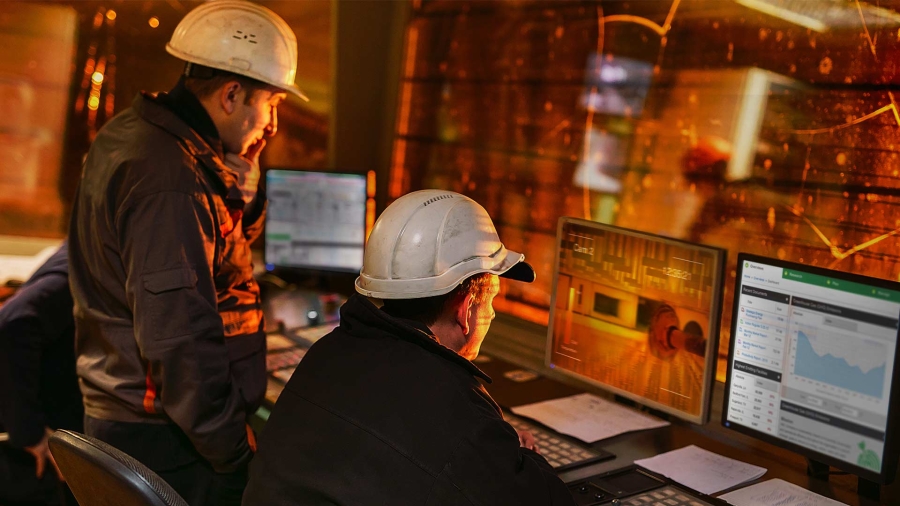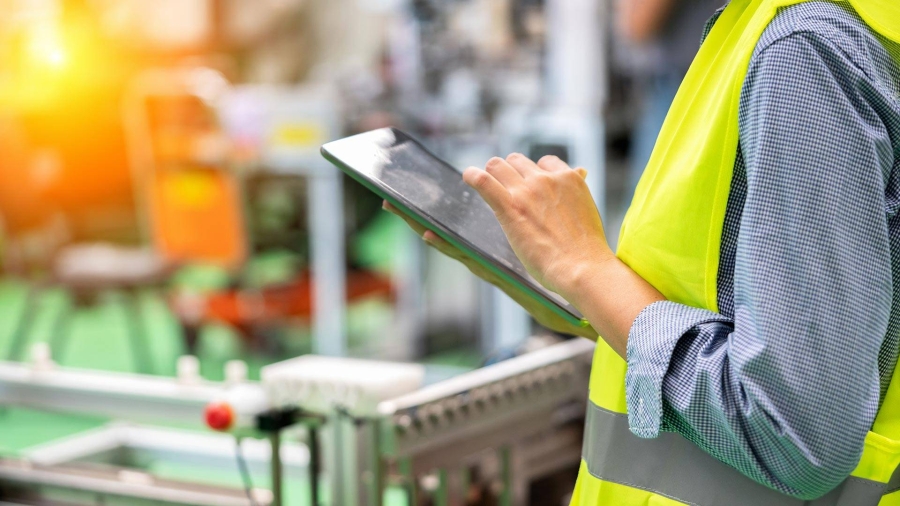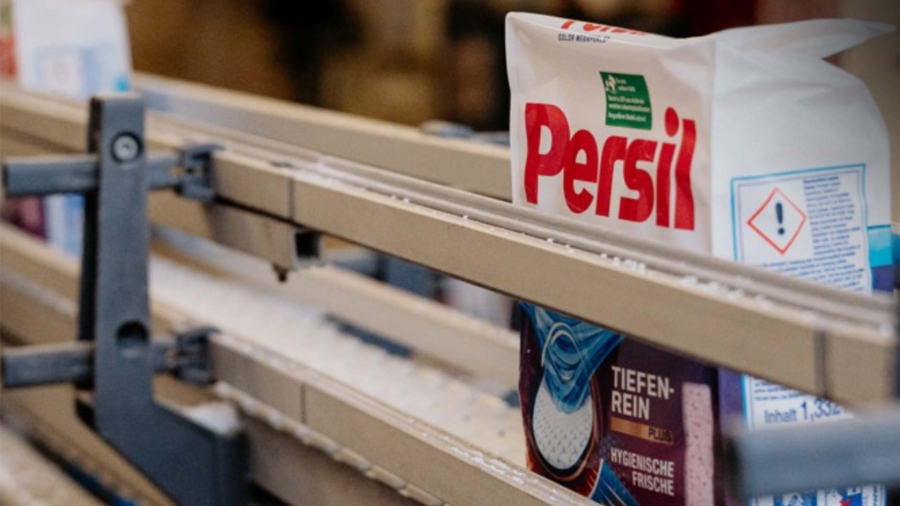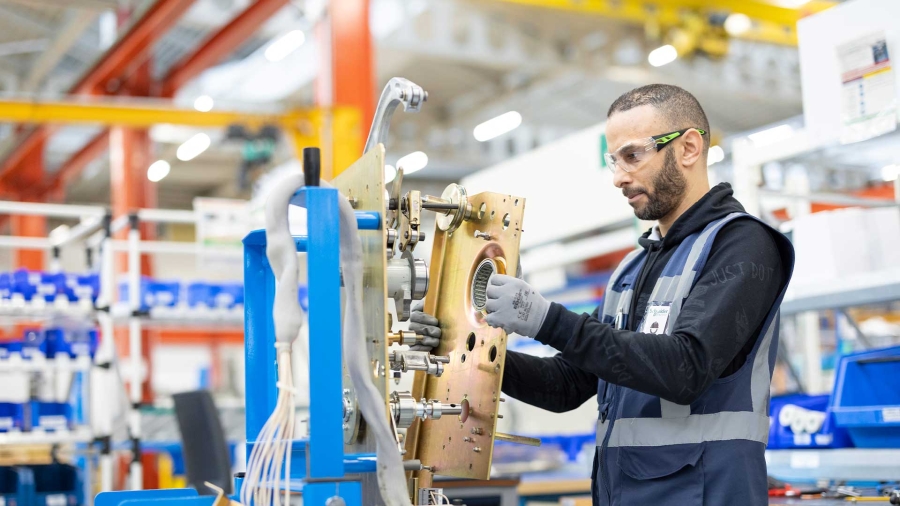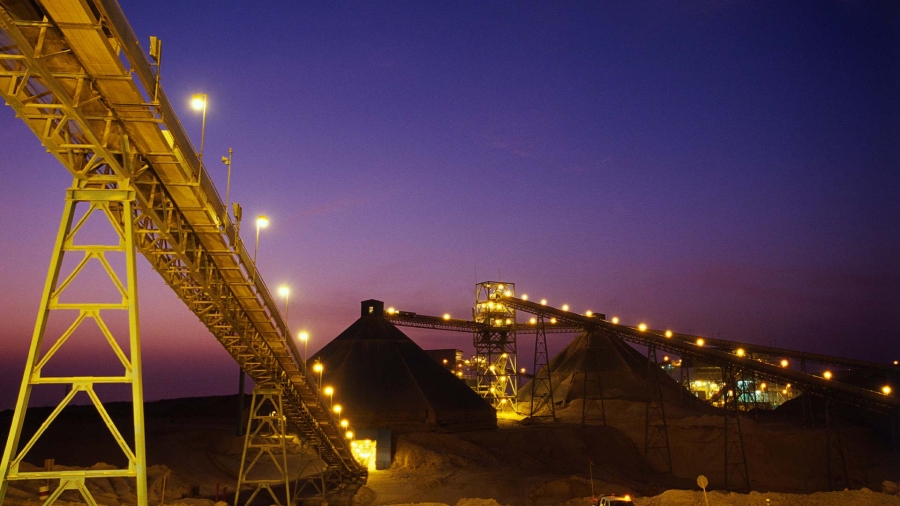René Meuleman
Sustainability is no longer merely an environmental imperative. There are also sound economic reasons for decarbonizing. René Meuleman discusses why an Industry 4.0 approach to process control is the key to balancing profitability with carbon neutral goals.
The global glass industry is entering a new age of green manufacturing in which it needs to bring its total carbon emissions down to zero during the next two furnace campaigns. Consequently, that means stepping away from fossil fuels towards alternative, sustainable energy sources; most likely to electrical energy, perhaps hydrogen, bio-fuels, or a combination of these. This represents a complex change, not only from a technological point of view but also from a commercial aspect. There are many complications to overcome. The bottom line of which is to keep earning money to finance the technological changes needed to secure the business, by managing capital expenditure and, specifically operating expense. In the meantime a new generation of workers is entering the industry, replacing most of the experienced workforce. The technological shift that needs to be introduced in this new era of glass making will in fact have a bigger impact on the industry than the introduction of the Pilkington or NNPB [narrow neck press and blow] processes of the past.
Every detail counts
More than ever, the glass manufacturing process will need to look for every tiny improvement that contributes to revenue and profit; squeezing savings out of every bit of available process flexibility. To support those operational advancements, process control and data analytics will have to adjust substantially. The way energy is paid for will change, the mix of energy used will change, and the way energy enters the process will change. Manufacturers will need to ensure that they are on the lowest possible energy tariffs, fulfilling CO2 emission targets, maintain manufacturing flexibility and maximising pull and yield while keeping customers happy at all times.
Glass Industry 4.0
The parameters involved do not necessarily amplify each other by working in the same direction. Typically, each advantage comes with a disadvantage so the only option is to tweak all parameters in a way that gets the most out of them as a whole. Over the next few decades the industry faces a huge technology change during which the most experienced workers will be replaced by enthusiastic but inexperienced youngsters, and the manufacturing process will move away from fossil fuel to begin using alternative energy sources. At the same time, it is important to ensure that glass continues to be the preferred packaging material for food and beverage to make vehicles and buildings more energy efficient and to contribute to a better world. The industry needs to maintain its social license to operate and this will require utilizing the latest digital technologies. Consider this transformation as Glass Industry 4.0.
Data is at the heart of sustainable practices
The development of process control over the last 25 years has resulted in established technology capable of solving the complex balances previously mentioned. However, the traditional approach still tends to treat each part of the process separately. An important part of the transformation to achieve the balance between sustainability and profitability is to start treating the process as a whole, as one multi-variable process. Therefore, batch house, hot-end, forming, cold-end, quality, packaging and warehouse can no longer be considered as separate systems. Start recognizing that each is part of, and has an impact on, the overall outcome. All parts interact with each other so they should all be controlled at the same time. Controlling the process correctly from end to end will improve the process as a whole. With the right infrastructure and actionable data, sustainability can be embedded in the entire production cycle, comprehensively including everything from supply chain management and glass manufacturing quality control to energy consumption and recycling.
Taking the right steps together
With renewables and distributed energy resources on the rise, businesses have the opportunity to become more profitable in the long run. By pairing energy information with analytic tools that make timely recommendations based on relevant historical and real-time data, digital transformation can set a business’s economy on a sustainable footing and accelerate its transition to low-carbon glass manufacturing.
Taking active steps forward, the amount of electrical power required for glass manufacturing will increase exponentially. Now is the time to empower the industry, to make the most of energy and resources, and bridge progress and sustainability for all. Getting the balance between sustainability and profitability right needs specific knowledge and skillsets that are not typically available from traditional furnace hardware and process equipment suppliers. Working with a trusted partner to harness digital and electrical technology and interlock new technologies ‘from grid to glass’ will help manufacturers contribute to the low-carbon economy and maintain their social license to operate. As a bonus, refreshment from glass bottles can continue, as the world cannot do without ‘green’ glass!
About the author:
Special thanks to René Meuleman for authoring this article. René was global glass business development manager for Eurotherm by Schneider Electric until February 2021. With a background in the development of electronic quality equipment for container glass manufacturing, he was involved in the first generation of PLC and DCS systems, as well as electronic timing systems for IS-machines. After working on several model based predictive control (MPC) projects and object-oriented engineering method developments, René became responsible for process control in the BSN group, then European plant process control and forming electronics within the Owens-Illinois group. During his 13 years at Eurotherm by Schneider Electric, he was responsible for glass business development based on the Eurotherm and Schneider-Electric portfolio. Working with regional glass expert teams to develop high-efficiency, innovative, pragmatic and competitive process and power control systems, that help glass producers to meet their sustainability and CO2 reduction goals.
This piece was first published in Glass Worldwide in February 2021.
Sustainability is no longer merely an environmental imperative. There are also sound economic reasons for decarbonizing. René Meuleman discusses why an Industry 4.0 approach to process control is the key to balancing profitability with carbon neutral goals.
The global glass industry is entering a new age of green manufacturing in which it needs to bring its total carbon emissions down to zero during the next two furnace campaigns. Consequently, that means stepping away from fossil fuels towards alternative, sustainable energy sources; most likely to electrical energy, perhaps hydrogen, bio-fuels, or a combination of these. This represents a complex change, not only from a technological point of view but also from a commercial aspect. There are many complications to overcome. The bottom line of which is to keep earning money to finance the technological changes needed to secure the business, by managing capital expenditure and, specifically operating expense. In the meantime a new generation of workers is entering the industry, replacing most of the experienced workforce. The technological shift that needs to be introduced in this new era of glass making will in fact have a bigger impact on the industry than the introduction of the Pilkington or NNPB [narrow neck press and blow] processes of the past.
Every detail counts
More than ever, the glass manufacturing process will need to look for every tiny improvement that contributes to revenue and profit; squeezing savings out of every bit of available process flexibility. To support those operational advancements, process control and data analytics will have to adjust substantially. The way energy is paid for will change, the mix of energy used will change, and the way energy enters the process will change. Manufacturers will need to ensure that they are on the lowest possible energy tariffs, fulfilling CO2 emission targets, maintain manufacturing flexibility and maximising pull and yield while keeping customers happy at all times.
Glass Industry 4.0
The parameters involved do not necessarily amplify each other by working in the same direction. Typically, each advantage comes with a disadvantage so the only option is to tweak all parameters in a way that gets the most out of them as a whole. Over the next few decades the industry faces a huge technology change during which the most experienced workers will be replaced by enthusiastic but inexperienced youngsters, and the manufacturing process will move away from fossil fuel to begin using alternative energy sources. At the same time, it is important to ensure that glass continues to be the preferred packaging material for food and beverage to make vehicles and buildings more energy efficient and to contribute to a better world. The industry needs to maintain its social license to operate and this will require utilizing the latest digital technologies. Consider this transformation as Glass Industry 4.0.
Data is at the heart of sustainable practices
The development of process control over the last 25 years has resulted in established technology capable of solving the complex balances previously mentioned. However, the traditional approach still tends to treat each part of the process separately. An important part of the transformation to achieve the balance between sustainability and profitability is to start treating the process as a whole, as one multi-variable process. Therefore, batch house, hot-end, forming, cold-end, quality, packaging and warehouse can no longer be considered as separate systems. Start recognizing that each is part of, and has an impact on, the overall outcome. All parts interact with each other so they should all be controlled at the same time. Controlling the process correctly from end to end will improve the process as a whole. With the right infrastructure and actionable data, sustainability can be embedded in the entire production cycle, comprehensively including everything from supply chain management and glass manufacturing quality control to energy consumption and recycling.
Taking the right steps together
With renewables and distributed energy resources on the rise, businesses have the opportunity to become more profitable in the long run. By pairing energy information with analytic tools that make timely recommendations based on relevant historical and real-time data, digital transformation can set a business’s economy on a sustainable footing and accelerate its transition to low-carbon glass manufacturing.
Taking active steps forward, the amount of electrical power required for glass manufacturing will increase exponentially. Now is the time to empower the industry, to make the most of energy and resources, and bridge progress and sustainability for all. Getting the balance between sustainability and profitability right needs specific knowledge and skillsets that are not typically available from traditional furnace hardware and process equipment suppliers. Working with a trusted partner to harness digital and electrical technology and interlock new technologies ‘from grid to glass’ will help manufacturers contribute to the low-carbon economy and maintain their social license to operate. As a bonus, refreshment from glass bottles can continue, as the world cannot do without ‘green’ glass!
About the author:
Special thanks to René Meuleman for authoring this article. René was global glass business development manager for Eurotherm by Schneider Electric until February 2021. With a background in the development of electronic quality equipment for container glass manufacturing, he was involved in the first generation of PLC and DCS systems, as well as electronic timing systems for IS-machines. After working on several model based predictive control (MPC) projects and object-oriented engineering method developments, René became responsible for process control in the BSN group, then European plant process control and forming electronics within the Owens-Illinois group. During his 13 years at Eurotherm by Schneider Electric, he was responsible for glass business development based on the Eurotherm and Schneider-Electric portfolio. Working with regional glass expert teams to develop high-efficiency, innovative, pragmatic and competitive process and power control systems, that help glass producers to meet their sustainability and CO2 reduction goals.
This piece was first published in Glass Worldwide in February 2021.


